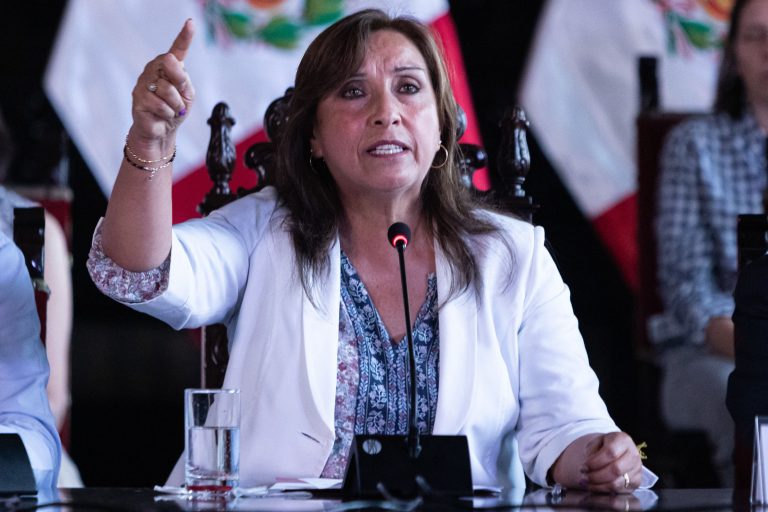On Dec. 21, the family of Peru’s former president, Pedro Castillo, were forced to flee to Mexico following Castillo’s detention and reports indicate that his family has been provided asylum by the Mexican government.
Following Castillo’s arrest and detainment, the Mexican ambassador to the country, Pablo Monroy, was also called to leave.
Leaving Peru
With Castillo in custody, his wife, Lilia Paredes, and her two children landed in Mexico City after being given safe passage by Peru’s foreign minister, Cecilia Gervasi. In a press conference on Dec. 21, Mexican President Andres Manuel Lopez Obrador — AMLO as he is otherwise known — announced the family’s arrival.
At the same time, AMLO criticized calls for Pablo Monroy’s departure as Peru’s “choice in favor of repression,” stating that the ousting was done without “dialogue and the democratic method of convoking elections as soon as possible,” Bloomberg reported.
Tensions between Mexico and Peru have been increasing since Castillo’s impeachment on Dec. 7.
Success
You are now signed up for our newsletter
Success
Check your email to complete sign up
On Tuesday, Monroy was asked to leave Peru within 72 hours, with authorities declaring him “persona non grata” as ambassador. According to the Andean country’s foreign ministry, Monroy was ousted due to “the repeated statements by that country’s highest authorities about the political situation in Peru.”
“Such expressions constitute an interference in the internal affairs of the country and therefore violate the principle of non-intervention,” Gervasi said, regarding the statements.
Peruvian opposition legislator Maria del Carmen Alva said that Mexico was “sheltering the corrupt,” with Paredes under suspicion of ties to a money laundering ring.
READ MORE:
- Peru’s Newly Elected President Pledges ‘Early Elections’ as Protests and Casualties Rise
- Peru Declares State of Emergency as Eight Die in Protests Over Castillo Ousting
- New Peru President Sworn In, Predecessor Castillo Arrested
Turmoil for Castillo
Castillo was impeached on Dec. 7, after he attempted to dissolve Congress with a state of emergency. In court, he was sentenced to detention for 18 months following suspicions of him supporting a rebellion or conspiring against the state.
He attempted to seek asylum in Mexico, but was intercepted by his own bodyguards before he could head to the Mexican embassy.
Castillo’s vice-president, Dina Boluarte, replaced him, sworn in by Congress to lead Peru. She requested for elections to be held earlier in April 2024. Lawmakers backed this request, though it remains to be seen if it will appease the public.
Given Castillo’s support for the rural communities of Peru, mass protests raged across the country, with his supporters calling for his release. The Peruvian government initiated a 30-day national state of emergency to deal with the unrest.
“First of all, we do not recognise Dina Boluarte,” construction worker Ronal Carrera said, according to The Guardian. “She is a coup leader, to this day our president is Pedro Castillo. Now we are demanding his reinstatement.”
At least eight people — five being teenagers — were shot dead with human rights groups like Amnesty International suspecting that police repression was the cause of the violence.
“Peru cannot overflow with blood,” Boluarte said on Wednesday. “We have already lived through this experience in the 80s and 90s, and I believe that we do not want to return to that painful history.”
Between 1980 and 2000, around 70,000 people were killed by members of the Shining path, a communist guerilla group based in Peru.


















